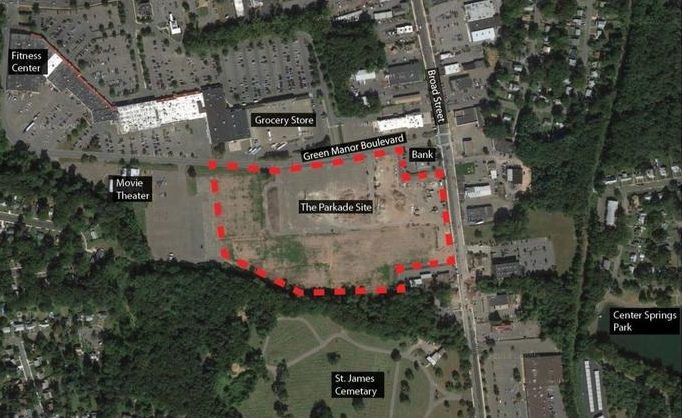
January 28, 2014 Development Team Discusses Holistic Vision For Manchester’s Core
Article by: Jesse Leavenworth, Hartford Courant
MANCHESTER — This town is rich with parks, grand architecture and great people, and it can build on those assets by taking a wide lens approach to the rebirth of the Broad Street commercial district, a team of developers told the redevelopment agency Tuesday.
“Our end goal is to create places where people are thriving, places that become the personality of a city,” Max Reim, founding principal of LiveWorkLearnPlay said.
The group was the sole respondent to the town’s request for developers interested in the town-owned side of the Manchester Parkade. The formerly blighted shopping center is now an approximately 18-acre expanse of vacant land that town leaders are eager to return to the tax rolls.
But Reim and other team members said the community should not look at the site in isolation. Rather, redevelopment should complement the town’s core, including downtown and Center Springs Park. The town, team members said, must avoid the old mistake of fostering development in one area to the detriment of another section, a boom-and-bust story that has played out in Manchester with its downtown, the “dark side” of the Parkade and the Buckland Hills mall.
The LWLP team is the developer of the New Haven Coliseum site, a $395 million project that is to include, shops, restaurants, housing, a hotel, offices and public spaces. Crucial lessons learned in New Haven and in other cities where LWLP has worked include the necessity of public engagement at the start and strong and consistent public and private leadership, Reim said.
The redevelopment agency’s next step is to decide whether to hire the team as a partner in the Broad Street redevelopment. Their first job, team members said, would be to gather residents’ comments and visions for the site. Do they see the focus as a recreational facility? An entertainment destination? Should Manchester build on its beautiful green spaces and make the site a pedestrian-oriented “eco-village”?
The town redevelopment agency already has gathered public input as part of its Broad Street redevelopment plan, and that material will be reviewed along with the renewed public engagement, team members said.
The agency’s plan for the site calls for a mix of uses, with a strong housing component, along with retail and civic uses. The board of directors, however, has focused on investigating an indoor athletic facility on the site. Directors say residents have consistently opposed new housing on the site.
Any workable plan, development team members said, will have strong community backing, but it also must be marketable.
One thing is for sure, Reim said — the post-World War II sprawl that cross-hatched Connecticut and the nation with housing tracts and strip malls is “a failed experiment.” People are flocking to college towns, mixed-use waterfront villages and cities where there are other people to see and things to do, he said.
“Manchester,” he said, “should be known as a place with things to do.”
